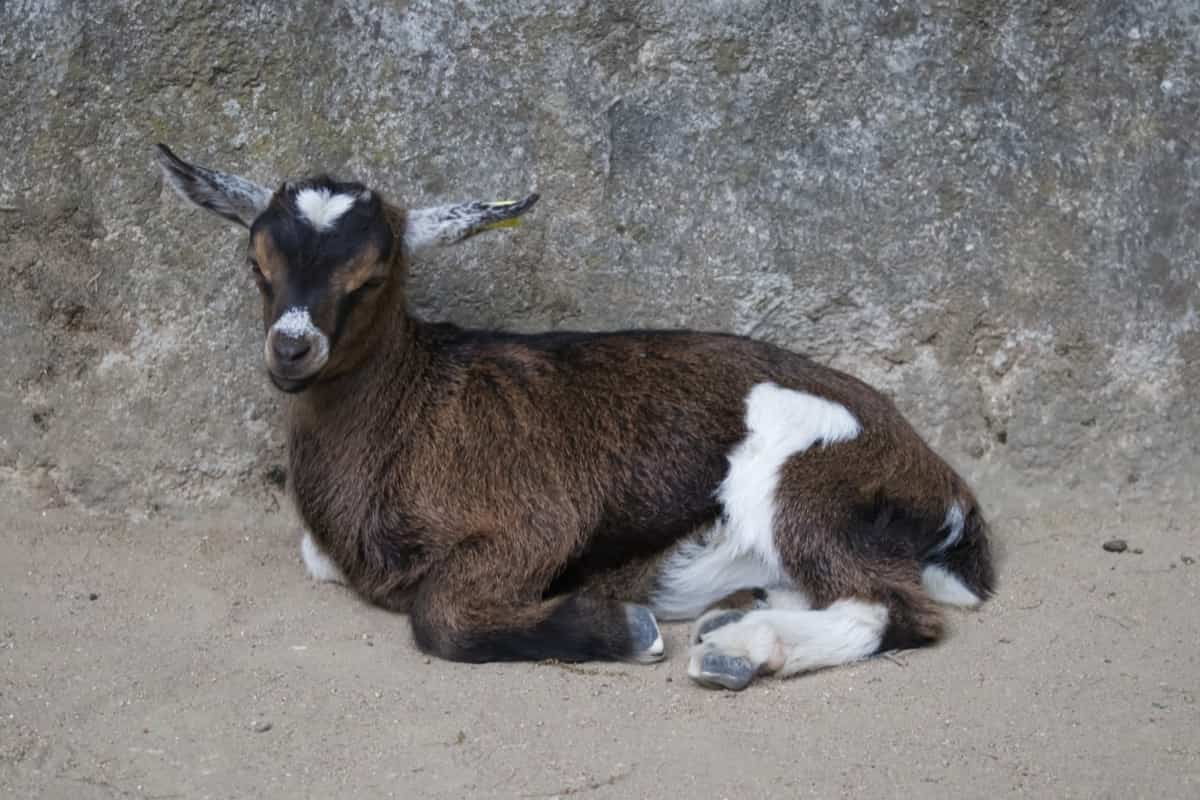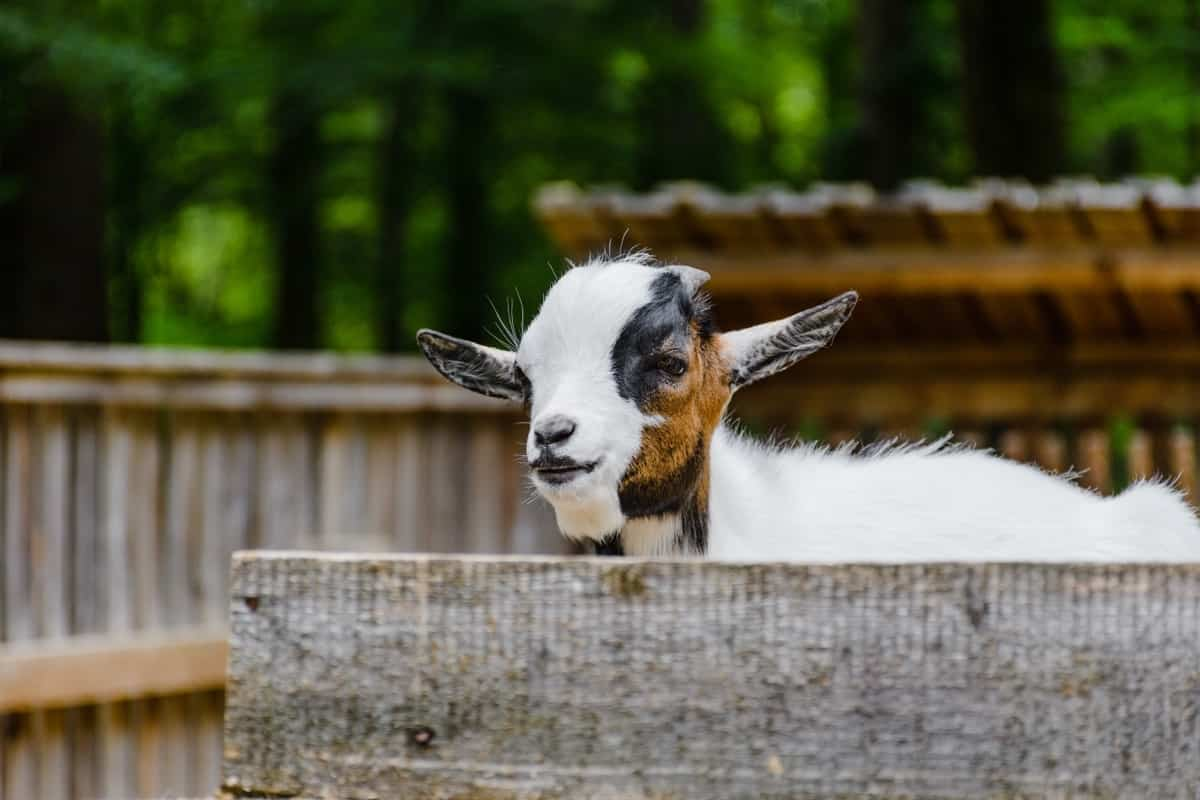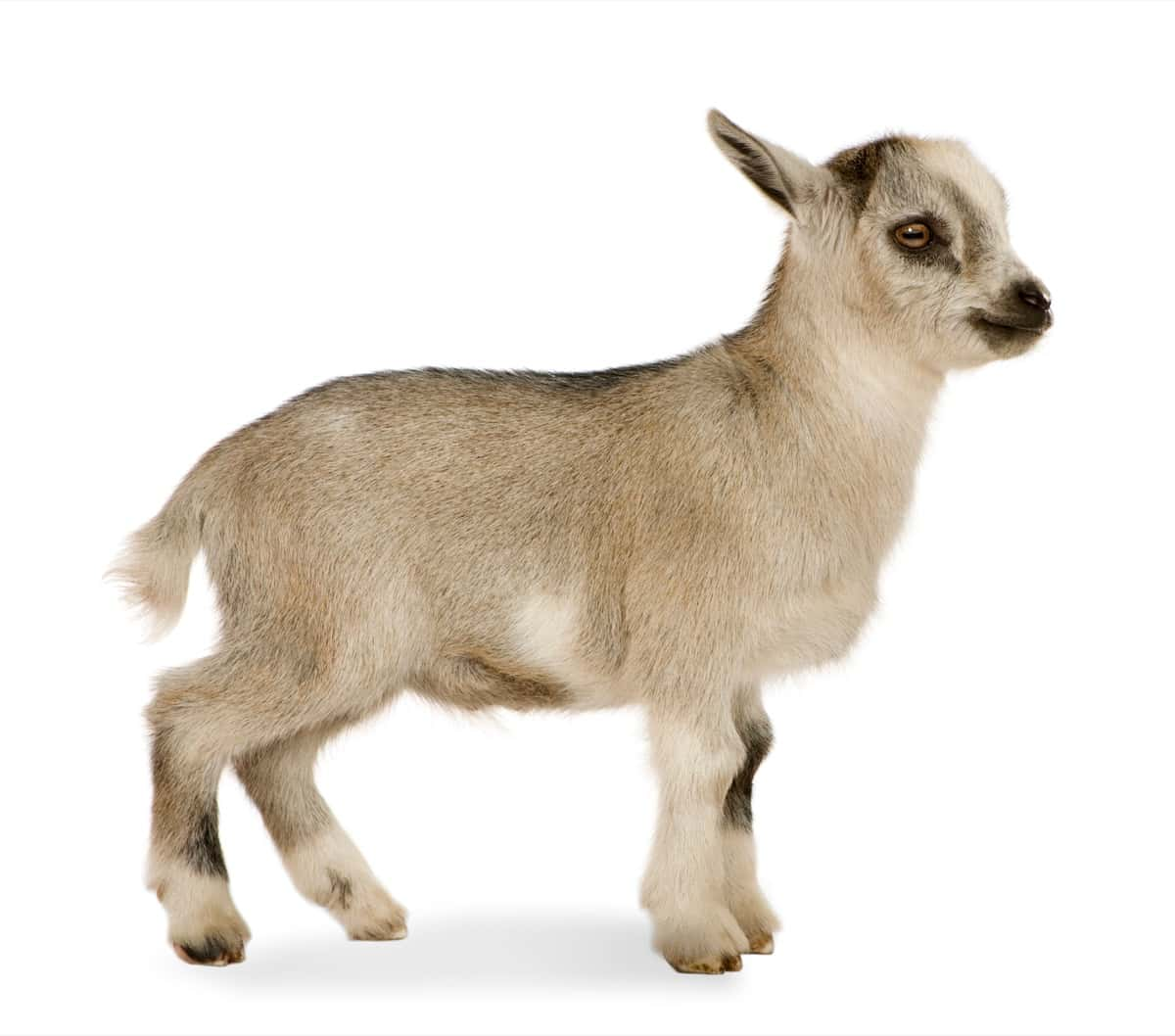Pygmy goats are popular pets and livestock animals due to their small size, playful personalities, and easy-going nature. They are perfect for small farms or homesteads, as they don’t require a lot of space.

How to Raise and Care for Pygmy Goats
Characteristics of Pygmy Goats
- Pygmy goats are dual-purpose goats; they are primarily raised for their meat and also raised for their milk.
- Pygmy goats are very friendly and make great pets. Pygmy goats are also very hardy and can survive in various climates.
- Pygmy male goats weigh about 50 to 70 pounds and are 16 to 23 inches tall. Female Pygmy goats weigh 40 to 70 pounds and are 16 to 22 inches tall.
- The Pygmy Goat was originally known as the Cameroon Dwarf Goat and came as the name from Cameroon in West Africa. Today, Pygmy goat still has a large presence in West African countries.
What Kind of Home Do Pygmy Goats Need?
Your Pygmy goats need a sturdy, well-built shelter to protect them from the elements. The roof should be sloped to shed rain and snow, and the walls should be solid enough to keep out wind and predators. The shelter should have plenty of ventilation to keep the goats cool in summer and dry in winter. It should also have a clean, dry floor where the goats can rest and sleep. Your goats will also need access to fresh, clean water. A water bucket or trough placed inside their shelter is a good option. Be sure to clean and refill it daily.
Shed and Fencing Requirements for Pygmy Goats
- Consider your climate and whether your goats will need protection from the elements. If so, you’ll want to build a sturdy shed that withstands high winds and heavy snowfall. You’ll also want to ensure the shed is well-ventilated to prevent your goats from overheating.
- Pygmy goats are known for being hard on their hooves, so you’ll need a floor that can withstand wear and tear. Concrete is a good option, but you may consider rubber or stall mats. Whatever flooring you choose, include plenty of bedding material for your goats to lie down on.
- Fencing is one of the most important aspects of raising Pygmy goats, as it will keep them safe and secure. There are various fencing options available, so be sure to do your research before making a decision. Goats are escape artists, so the fence must be tall enough (at least 4 feet) and have no gaps or holes.
- Pygmy goats are social creatures and need companionship, so the fence should allow several goats to be together. Goats like to chew on things, so the fence should be made of durable materials that can withstand chewing.
How to Care for Your Pygmy Goat
1. Provide plenty of fresh water – Goats always need access to clean water. If you live in a hot climate, provide extra water or put out a kiddie pool for your goats to cool off. These goats need access to fresh water at all times, so ensure you have a water bucket or trough filled daily. They also need hay for roughage, which helps with digestion. You can buy hay from a pet store, online, or grow your own if you have the space.
2. Feed them a balanced diet – Goats are browsers, not grazers like cows. They prefer to eat leaves, twigs, and other vegetation. You can supplement their diet with hay, grain, fruit, and vegetables. Ensure they always have access to fresh grass or hay to stay healthy.
3. Keep their living area clean and dry – Goats are very tidy and prefer a clean environment. Be sure to scoop out their sleeping area regularly and replace soiled bedding with fresh straw or hay. Also, keep their food and water dishes clean, so they don’t get sick.
4. Get vaccinated against common diseases – Goats can be susceptible to certain diseases like all animals. Be sure to talk to your vet about which vaccinations your goats should get based on where you live and their risk of exposure to disease.
5. Trim their hooves regularly – To prevent overgrowth and infection, goats’ hooves must be trimmed periodically. You can do this with a hoof trimmer (available at most farm supply stores) or hire a professional trimming service.
In case you missed it: Black Bengal Goat Farming: Goat Kid Price, Meat Price, And Growth Rate

Tips for Providing Water for Your Pygmy Goats
- Goats need 2 to 3 gallons of water daily.
- Your Pygmy goats will need access to fresh water at all times.
- A water bucket or automatic waterer attached to a hose is ideal.
- Be sure to consult a veterinarian before changing your goat’s diet.
Pygmy Goat Health Concerns
One of the most common health problems in Pygmy goats is called enterotoxemia. This bacterial infection occurs in the intestines and can cause severe diarrhea. If not treated promptly, enterotoxemia can be fatal.
Another health concern for Pygmy goats is coccidiosis, a parasitic infection affecting the gastrointestinal tract. Coccidiosis can also cause severe diarrhea and can be fatal if not treated quickly. Both diseases are more common in young kids (baby goats), so it’s important to watch them and get them to a veterinarian if you notice anything unusual.
How Do I Know If Pygmy Goats Are Sick?
- Loss of appetite
- Weight loss
- Diarrhea
- Constipation
- Abnormal behavior (lethargy, depression, aggression, etc.)
- Increased thirst
- Unusual vocalizations
- Runny nose or eyes
Feeding Tips for Pygmy Goats
- Pygmy goats are browsers, not grazers. This means they prefer to eat leaves, twigs, and other browse rather than grass. You can either grow to browse yourself or buy it from a feed store.
- Pygmy goats need a lot of hay. Hay is an important part of their diet and provides them with the necessary nutrients. Make sure to give your Pygmy goat plenty of hay each day.
- Pygmy goats also need a source of fresh water. They will drink from a bowl or trough but prefer running water. If you have a Pygmy Goat, you must provide them with a constant fresh water supply.
- You’ll also need to provide your Pygmy goat with some mineral supplements. This is especially important if they do not get enough minerals from hay and browse alone. You can purchase mineral supplements from most feed stores.
- Finally, remember that Pygmy goats are social animals and love to play. Be sure to provide them with plenty of toys and interactive activities so they can stay entertained.
In case you missed it: Goat Farming Sucess Stroy: How This Livestock Farmer Became Rich

Conclusion
Pygmy goats are fun and friendly animals. They are great for families with children because they are low-maintenance and easy to care for. Pygmy goats are also good for people who want a small animal as a pet. Pygmy goats require less space than other breeds of goats. They can be kept in a backyard or on a small farm. They are social animals and do best with at least one other Pygmy goat as a companion.
- Feed Your Flock for Less: Top 10 Tips to Save on Chicken Feed
- Ultimate Guide to Ossabaw Island Hog: Breeding, Raising, Diet, and Care
- Hatching Answers: The Top 10 Reasons Your Chickens Aren’t Laying Eggs
- Eggs and Economics: Breaking Down the Cost of Raising Backyard Chickens
- Defend Your Greens: Proven Methods to Keep Iguanas Out of Your Garden
- Ultimate Guide to Cinnamon Queen Chicken: A Comprehensive Guide for Beginners
- Ultimate Guide to California Tan Chicken: Breeding, Raising, Diet, Egg-Production and Care
- Ultimate Guide to Marsh Daisy Chicken: Breeding, Raising, Diet, and Care
- 10 Types of Chicken Farming Businesses You Can Start for Profits